UMMC gives visiting students clinical experiences key to their training
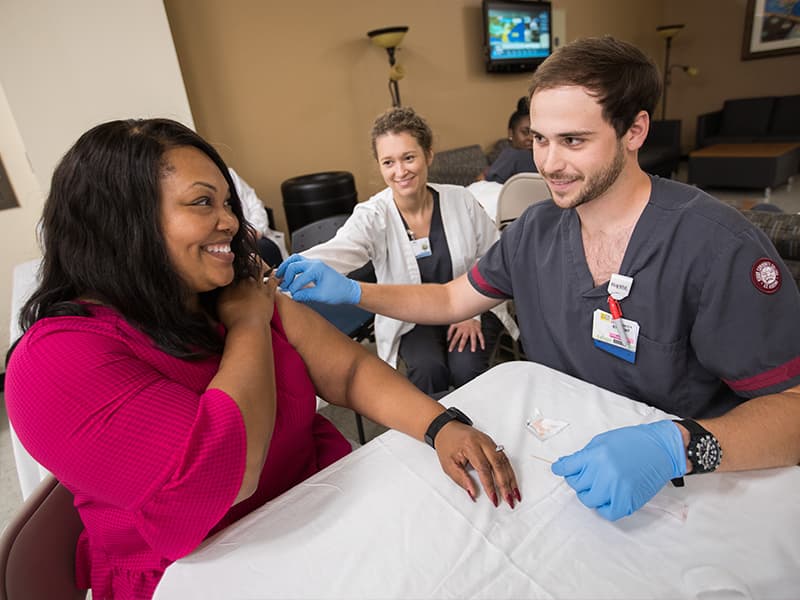
Come May, Seth Batton and Collins Davis will graduate from Hinds Community College in Raymond and begin their careers as registered nurses.
But today, they’re shadowing the professionals they aspire to be, and practicing skills that transcend from their own classrooms to front-line patient care. The University of Mississippi Medical Center gives them and thousands of other non-UMMC students that chance.
“We went to Batson for a clinical observation day, and I spent time in the NICU,” Batton, a Magee resident, said as he waited this week for Medical Center employees to drop by a flu shot table staffed by Hinds nursing students by the Learning Resources Center. “You’re kind of wowed by the whole experience.”
Davis also gave flu shots, a skill she learned in her Hinds classes. Much more enjoyable and inspiring was the day she spent this semester at the Cancer Clinic at Batson Children’s Hospital.
“It was amazing, because the kids were so strong,” said Davis, a Ridgeland resident who wants to work with children. “They were braver than the adults we take care of.”
Those clinical experience aren’t a given for students across Mississippi public and private colleges and universities who are pursuing health sciences careers. Many travel to the Medical Center’s hospitals and clinics, and they spend anywhere from days to weeks observing and training.
The numbers fluctuate as students flow in and out. A total 752 non-UMMC students and their instructors are visiting this fall on the Jackson campus and UMMC hospitals in Grenada and Holmes County.
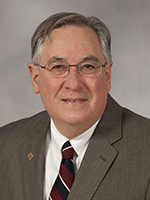
“This is not about class,” said Dr. Ralph Didlake, professor of surgery and associate vice chancellor for academic affairs. “The Medical Center’s schools are engaged in the process very little. We’re talking about a group of students from a community college coming in, with their own instructor, and spending time in our patient care wards, or the OR, or the ICU.
“As the state’s only academic health sciences center, we have training opportunities that no other institution in the state can provide,” Didlake said. “We feel an obligation to make that resource available to students who need clinical training.”
Those ranks also include students from William Carey University’s College of Osteopathic Medicine and 34 out-of-state medical schools. It’s a huge benefit to health careers students, and one that rarely carries any compensation to UMMC for use of its facilities and the expertise provided by its medical professionals.
The costs absorbed by the Medical Center “would run in to the millions of dollars,” Didlake said. However, Didlake said, “we see this as an investment in the state’s health care workforce. It aligns with our institutional mission.”
The on-site training is a critical part of preparing students who will give care in a state that ranks last in the nation in practicing physicians per 100,000 population. That number is 184, latest statistics from the Association of American Medical Colleges show, with almost 30 percent of them age 60 or older. Mississippi has just 995 nurses per 100,000 population, latest numbers from Becker’s Hospital Review show.
And, although Mississippi has a number of nursing schools, there are a limited number of hospitals and clinics where nurses-to-be can learn job skills.
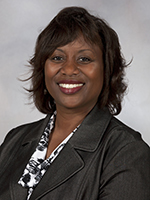
The number of students who need clinical experiences is “staggering,” said Dr. Loretta Jackson-Williams, professor of emergency medicine and vice dean for medical education in the School of Medicine’s Office of Medical Education.
“A lot of the time, people on the outside looking in say that we have that big hospital and all that clinic space, and we should be able to take everyone. You can’t,” she said. “It’s not just about the number of medical students in the clinical space. It’s the number of all learners in the clinical space, and how far your resources will go.”
Just one example: In the adult Emergency Department, there can be medical students, nursing students, physician’s assistant students, respiratory therapy students, even paramedic school students on any particular day. “There are only so many IVs that need to be put in. How do you decide which learner has the opportunity to try to put in the IV?” Jackson-Williams asked. “And the clinical space is limited physically.
“As a manager of all of those resources, we have to be sure we are managing them wisely.”
Rebecca Ward, a nursing instructor at Hinds, this semester is taking 48 students in their third semester of nursing school to UMMC for clinical observation. A total 91 Hinds nursing students will pass through the Jackson campus this semester.
They’re joined by 47 nursing students from Holmes Community College, 26 nursing students from Belhaven University and 69 nursing students from Mississippi College. UMMC Grenada is hosting 58 nursing students from Holmes, 19 from Mississippi Delta Community College and 20 from Delta State University.
And that’s just nursing students. A sampling of other fields represented at UMMC in Jackson: 80 paramedic/EMT students from Hinds and 21 from Holmes; 20 respiratory therapy students from Hinds and 16 from Pearl River Community College; and 39 physician’s assistant students from Mississippi College.
Ward says the time she and her students spend at the Medical Center is golden.
“If we didn’t have this resource, they wouldn’t get this experience,” Ward said. “At Hinds, we don’t do pediatric clinical skills. We asked to go to Batson so that our students would get exposed to pediatrics.”
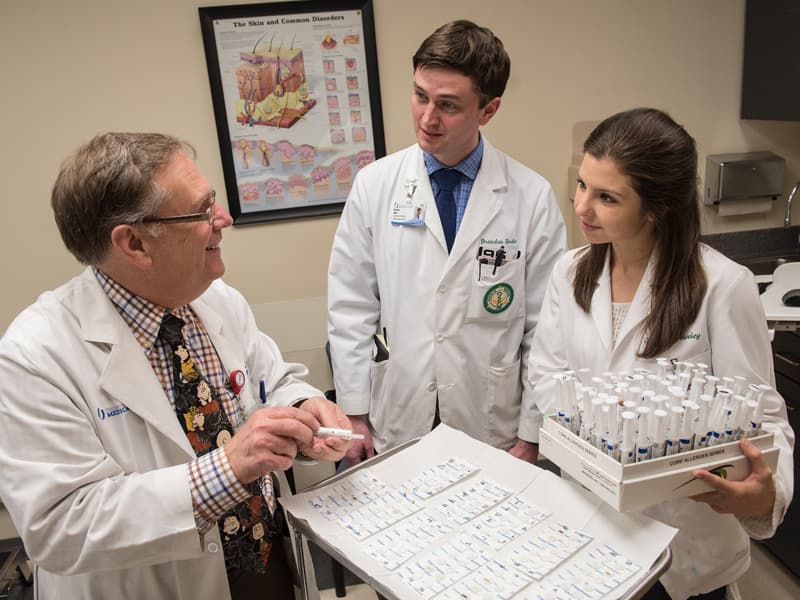
Fourth-year medical students chosen from other institutions typically spend three to four weeks at the Medical Center during the fall semester in what’s called an “away” rotation. They receive a grade from UMMC and class credit from their home institution. “A huge part of that experience is to determine whether or not this is where they’d like to do their residency program,” Jackson-Williams said.
About 75 allopathic and osteopathic medicine students are at UMMC this fall.
“It may be that they’re interested in pediatrics or a subspecialty,” Jackson-Williams said. “They’re trying to figure out if the program fits for them. I tell my students that if they go to another institution, they aren’t trying to figure out the educational content. They need to figure out if the way it’s delivered fits their style, and if they want to live there.”
That’s exactly what Evelyn Coile, a 34-year-old married mom of two boys, is doing. The Mercer University School of Medicine student is spending four weeks at the Medical Center observing and learning in the Division of Transplant and Hepatobiliary Surgery.
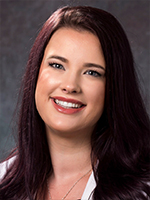
“I chose transplant, because we don’t have that at the hospital where I do my training in Savannah,” Coile said. “I want to get to know the residents and faculty to see if it will be a good fit for my family to come here – not just a good fit for my training, but for my two children and husband.”
The day she began her rotation, she accompanied a transplant surgeon to a city a couple of hours from Jackson to procure organs from a donor. On Wednesday, she observed a liver transplant.
“I’ve learned a lot about the biologics and immunosuppressants,” Coile said. “I’ve learned there’s quite a bit of work to be done after a kidney transplant, and that they sometimes require dialysis because they take a few days to perk up and function. I definitely want advanced training.”
Allopathic medical schools are nationally accredited by the Liaison Committee on Medical Education, or LCME. It requires the same clinical experience for all students performing rotations. “Each rotation we have available for students in the fourth year has a capacity limit,” Jackson-Williams said.
Because schools of osteopathy are not LCME-accredited, she said “we have to have an affiliation agreement of what we will be responsible for providing, and what they have to provide in order for their student to be here.” That includes William Carey, which has 15 osteopathic medicine students at UMMC this fall.
As health careers education expands, so will the demand for UMMC’s clinical experiences.
“I’ve really learned a lot,” Coile said. “The only program that does liver transplants in Georgia is in Atlanta.”
“They highly value the experience they get here,” Didlake said. And especially, an experience at an academic medical center “is like none other that they will see.”

